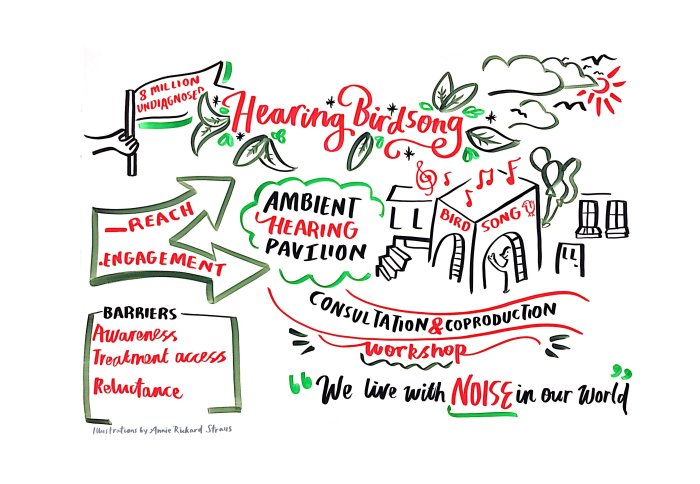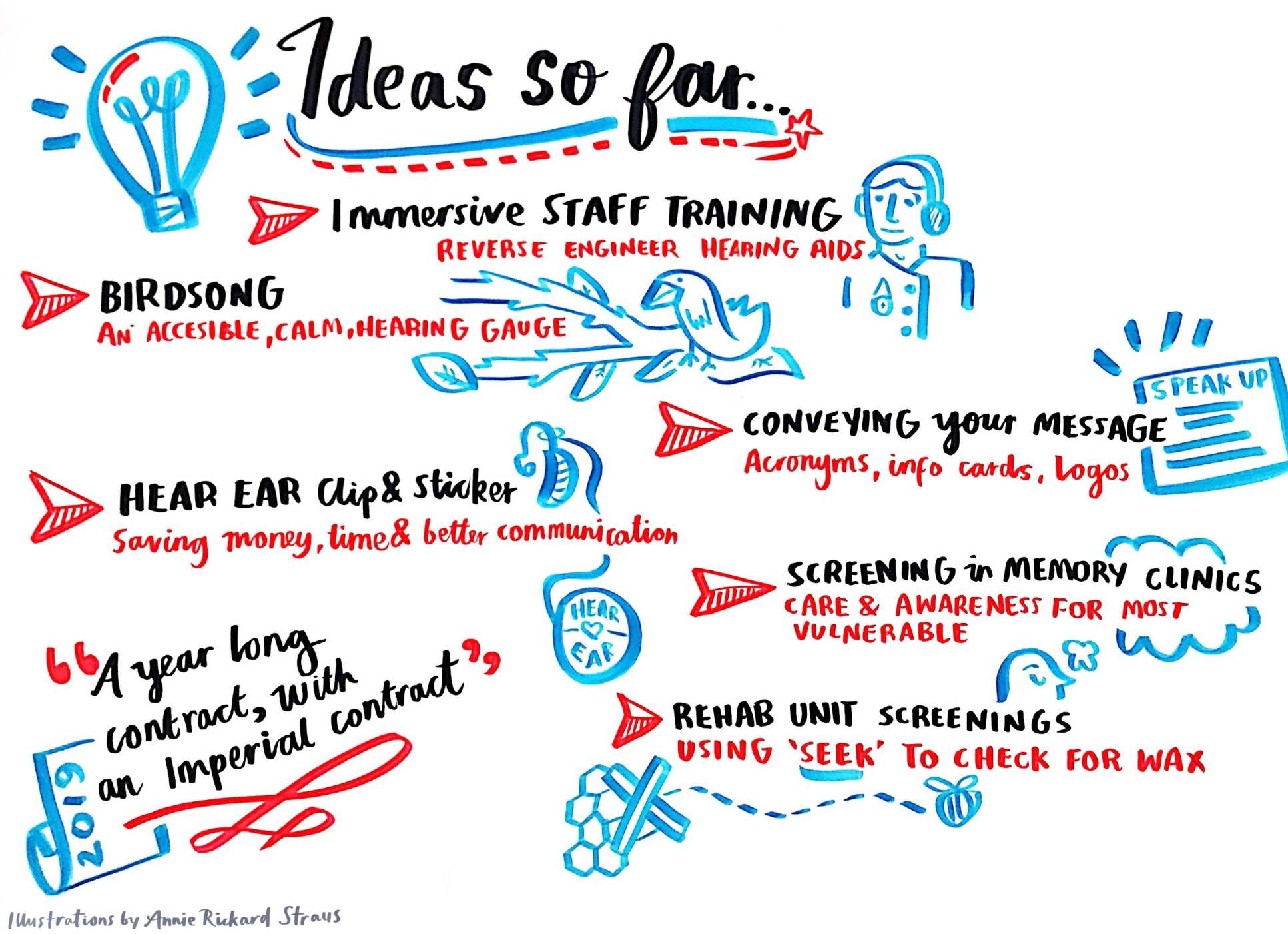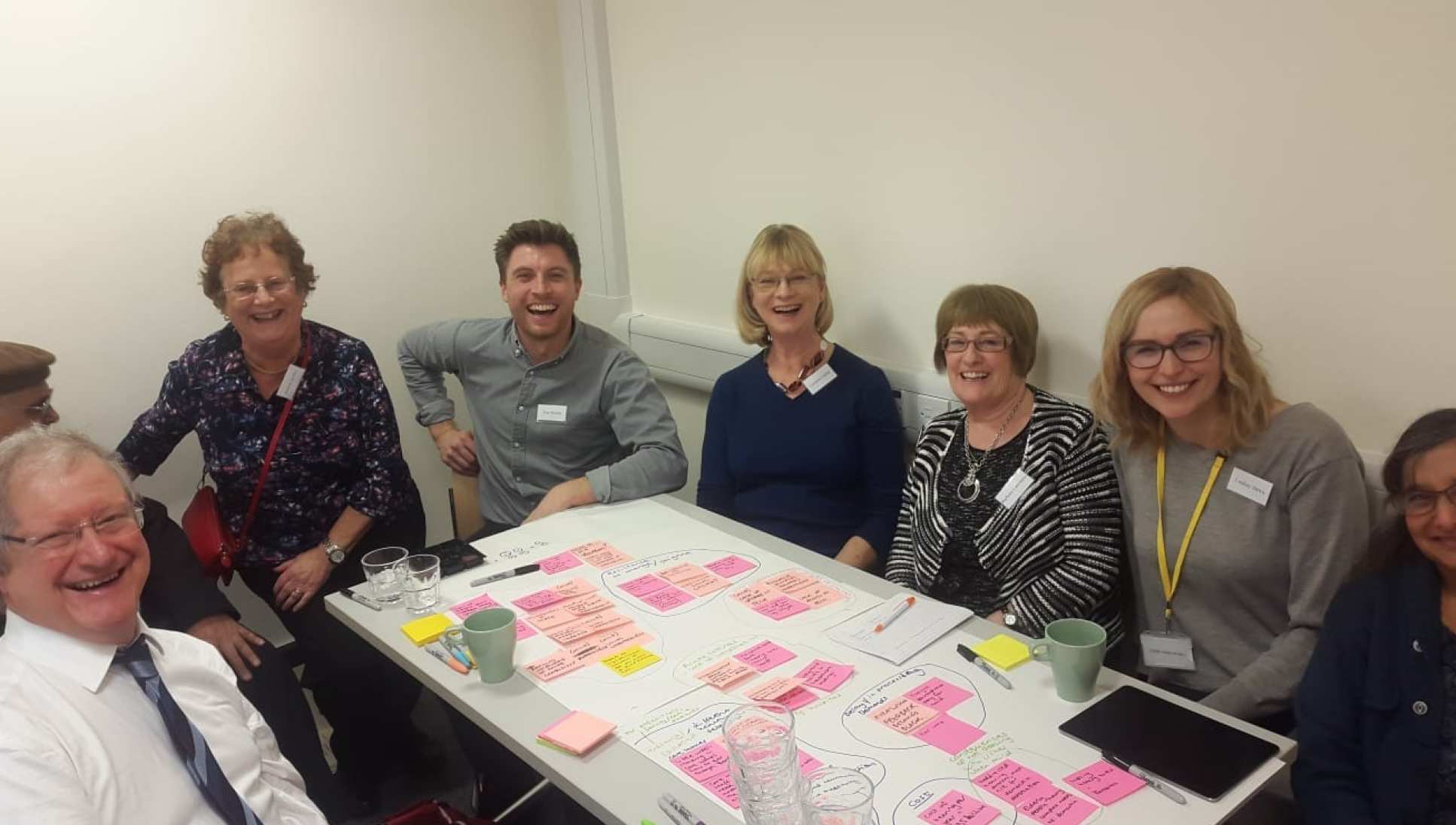Could bird songs help boost engagement with hearing tests?

Novel idea seeks to raise awareness of hearing loss with the help of bird songs.
A new project will explore the use of bird songs to increase engagement with hearing tests and treatment for hearing loss.
The venture was born out of a two-day Imperial workshop, developed to stimulate innovative ideas that could help improve communication for adults with mild or moderate hearing loss. Finding ways to improve communication to make care safer was recently highlighted as one of the top research priorities for adults with multiple health conditions, which was one impetus to bring different people together to explore this theme.
The newly-forged team now has £5,000 from the NIHR Imperial Patient Safety Translational Research Centre (Imperial PSTRC) to get their idea off the ground, which they hope will bring greater awareness and reduce the stigma surrounding hearing loss.
The scale of the issue
Around 1 in every 6 of us in the UK is estimated to be affected by hearing loss, amounting to some 11 million people. Yet, as Professor Adrian Davis OBE stated at the workshop, “It’s thought that hearing loss goes unaddressed in as many as nine million of these individuals.” And with hearing loss becoming more common as we get older, living in an ageing population means that the issue will only become more widespread.
This growing problem has far-reaching implications for people’s health and their quality of life. Not only can hearing loss contribute to social isolation and depression, it’s also linked with a number of other health conditions including dementia and stroke. In addition, hearing loss could negatively impact patient safety if communication about a person’s health or care isn’t clear.
“Patients report that they feel safer when communication is good between them and healthcare staff.” Anna Lawrence-Jones
“Patients report that they feel safer when communication is good between them and healthcare staff,” said Anna Lawrence-Jones, Patient and Public Involvement Manager at the Imperial PSTRC, referring to research from the Centre’s Emily Barrow.
With a diverse Steering Group, Imperial PSTRC won funding from the UCL Centre for Co-production in Health Research to run a “sandpit innovation workshop” to co-design novel ideas that could improve communication between adults with mild or moderate hearing loss and health and social care staff.
A number of overarching issues were highlighted at the event, which became the priorities for areas in need of innovation. These issues included the stigma attached to hearing loss and resulting low acceptability of hearing aids, and a lack of awareness, both among care staff and adults affected by hearing loss. This can mean that hearing loss goes unaddressed, either because they’re not getting the help they need, or they’re not seeking it in the first place.
Why a sandpit innovation workshop?
The sandpit method joins a diverse group of people together for a number of days, stripping away hierarchy. This allows everyone’s expertise to be brought to the table and people to co-create ideas from a multitude of perspectives. Although participants are technically in competition for funding, there is a sense of joint ownership of the ideas, as the spin-out groups that form during the process are fluid and there are several rounds of peer feedback.
From problems to solutions
Six different proposals were put forward by participants at the event as potential solutions for these complex problems, which were pitched to a diverse judging panel including people affected by hearing loss and people working in care. One idea was to develop personalised user-designed cards, likened to My Medication Passport. These would facilitate better communication by giving individual preferences to care staff, such as the need to make eye contact and speak clearly. Another was to develop a portable, immersive app that allows staff to experience hearing loss in different settings, aiming to increase empathy and understanding among care staff of the difficulties that come with hearing loss.
The winning idea, “Hearing Birdsong”, was developed by a team of two patient representatives, a product designer from Kennedy Woods and a researcher from Imperial PSTRC. It was inspired by one attendee who was motivated to seek help for her hearing after losing the ability to hear birdsong. Their idea is to trial the acceptability of a non-threatening hearing test using familiar sounds such as birdsong, played in a safe public space. Information and people available at the location would then encourage conversation and raise awareness about hearing loss and the pathway to support.
The team was also motivated by the millions of people with undiagnosed hearing loss, the impact of undiagnosed hearing loss, for example on mental health, and the fact that hearing tests have remained essentially unchanged for nearly 80 years. By opening up the dialogue on hearing loss, the team hope their idea will lead to earlier diagnosis and ultimately improve quality of life.
Other formed teams and concepts developed at the event will be seeking funding from other sources to pursue their ideas. The productive and engaging event linked new people together and we hope many of the ideas will go on to improve care and communication for people with hearing loss. 
Article supporters
Article text (excluding photos or graphics) © Imperial College London.
Photos and graphics subject to third party copyright used with permission or © Imperial College London.
Reporter
Justine Alford
Institute of Global Health Innovation